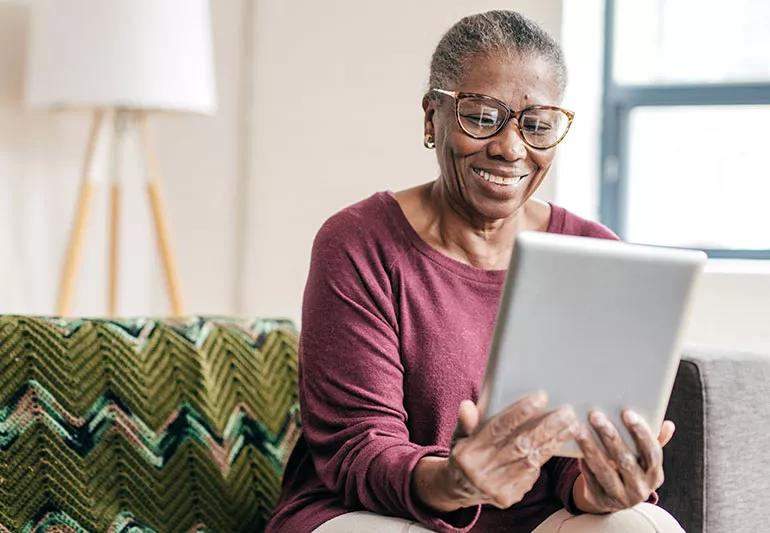And why you shouldn't be so quick to post your COVID-19 vaccine card on social media

Image content: This image is available to view online.
View image online (https://assets.clevelandclinic.org/transform/4f23ed1b-d7a1-4605-896c-e0f9928be70c/5StepsBeforeVaccine-1054911390-770x533-1_jpg)
Someone smiles while they read something on their tablet.
You made your appointment to get vaccinated against COVID-19. Great. Now what? As you wait for vaccination day, you might be wondering what you’ll need to do throughout the process. Pediatrician Michelle Medina, MD, suggests the following to help ensure that things go smoothly.
Advertisement
Cleveland Clinic is a non-profit academic medical center. Advertising on our site helps support our mission. We do not endorse non-Cleveland Clinic products or services. Policy
If you received the first dose of Moderna’s or Pfizer’s COVID-19 vaccine, it’s important to complete the vaccination series. Most places will schedule your second dose as soon as possible at the same location where you received your first dose, and some places are taking walk-in vaccinations. Should you need to reschedule, notify the vaccine provider sooner than later so they can fill your old spot and find a new date that works for you.
Since Johnson & Johnson’s vaccine is one dose, all you have to worry about is getting to your appointment and protecting yourself after the shot until you’re considered fully vaccinated.
Keep your CDC vaccination card safe and in good condition. You can take a photo of your card with your smartphone after each shot so you can have your vaccine information on you at all times.
Your vaccination card information will help ensure that you receive the first and second doses from the same manufacturer. It’s also good to reference if you’re asked about your vaccine records during future medical appointments.
When you get vaccinated, the provider will place a sticker on your vaccination card that includes the following information:
Advertisement
You might get an appointment only to find that another provider can get you in even sooner. Should this happen, notify the provider of your original appointment and let them know that you’ve made other arrangements. The provider can then give that appointment to someone else and not waste a dose of the vaccine.
After being vaccinated for COVID-19, don’t be afraid to share your experience with friends and family. It can help those who might need a little more reassurance that they’re doing the right thing or clear up some misconceptions about the vaccination process. Be sure to share educational information as well to help keep them informed.
While you might be extremely proud about doing your part (and you have every right to feel that way), avoid sharing pictures of your vaccination card on social media. The Federal Trade Commission (FTC) issued a warning recently about identity thieves stealing personal information like names and dates of birth from those smiling selfies.
This information might not seem like a lot, but scammers can use it to open accounts or claim your tax refund. If you do post a selfie with your vaccination card, be sure to blur out or cover up your personal information.
Advertisement

Sign up for our Health Essentials emails for expert guidance on nutrition, fitness, sleep, skin care and more.
Learn more about our editorial process.
Advertisement
The short answer: It’s complicated, but the basic care precautions still prevail, like washing your hands and isolating if you’re sick
They can feel like a typical headache or a migraine headache, but the pain can last for weeks to months
Any large social gathering — from a family birthday party to an indoor music concert — has the potential to spread serious infection
It’s important to connect with a healthcare provider, get quality sleep and balance your activities with your energy levels
Just like the flu, COVID-19 will continue to evolve every year
The duration varies, but symptoms can linger for a few days up to a couple weeks or more
Vaccination is best for prevention, but if you get sick with COVID-19, treatments are available
The virus lives best in humans, but it can last on hard surfaces, like doorknobs and railings
Type 2 diabetes isn’t inevitable with these dietary changes
Applying a hot or cold compress can help with pain
Pump up your iron intake with foods like tuna, tofu and turkey